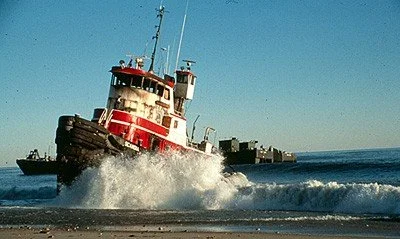The North Cape oil spill took place on Jan. 19, 1996, when the oil barge North Cape and the tug Scandia grounded on Moonstone Beach, in South Kingstown, R.I., after the tug caught fire in its engine room during a winter storm. An estimated 828,000 gallons of home-heating oil escaped, causing major pollution.
Adapted from Robert Whitcomb’s “Digital Diary,’’ in GoLocal24.com
Christopher Reddy, a veteran scientist at the Woods Hole Oceanographic Institution, has just published a very useful, accessible and sometimes exciting guidebook for those navigating the shoals of environmental crises, about which Dr. Reddy, an expert on the effects of oil spills, among other things, has long personal experience. Science Communication in a Crisis: An Insider’s Guide has an engaging conversational voice and should be read by scientists, especially the more public-facing ones, journalists, communications officials, regulators, politicians and, for that matter, the general public.
Much of the expertise displayed in the book stems from the lessons he learned as a participant in efforts to study and mitigate such disasters as the massive Deepwater Horizon spill, in the Gulf of Mexico, in 2010.
Members of the groups above should keep Dr. Reddy’s book on their desks. And its compact guidebook format makes it easy to take into the next environmental emergency.











